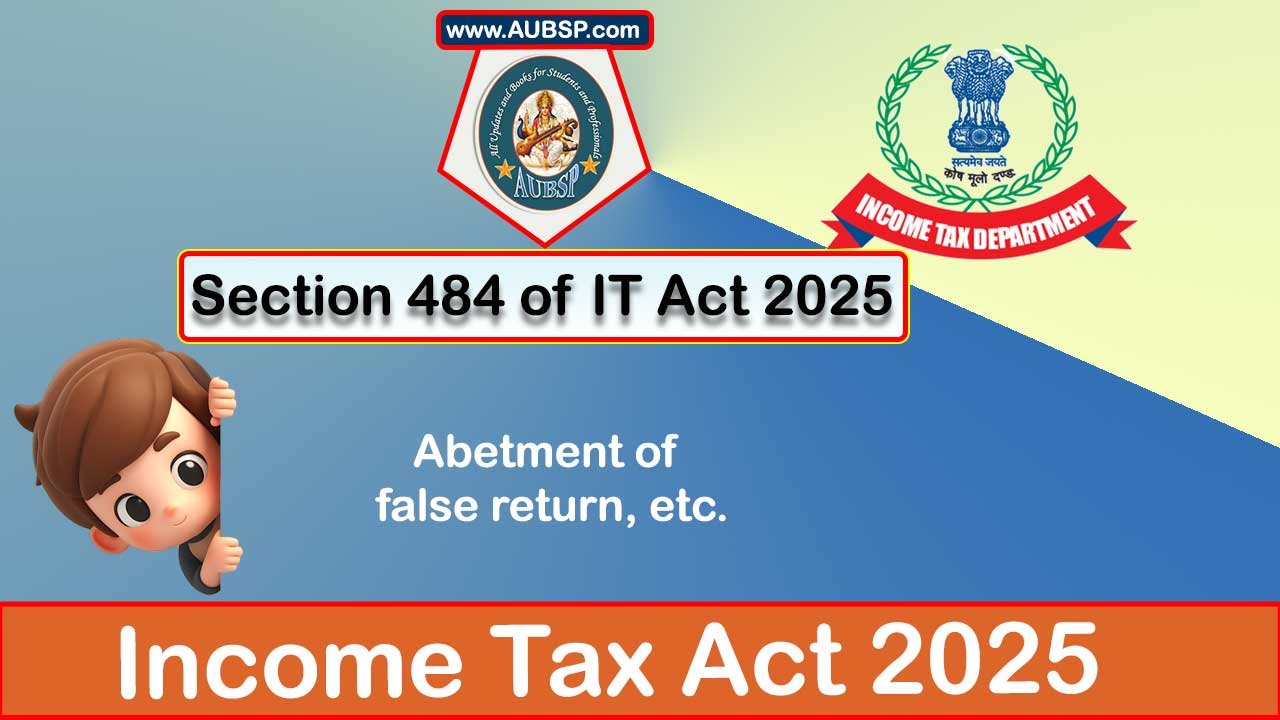Abetment of false return, etc.
[Section-484 as per the Income Tax Act, 2025 (this Act) w.e.f. 1st April, 2026.]
If a person abets or induces in any manner another person––
- (a) to make and deliver an account or a statement or declaration relating to any income chargeable to tax which is false and which he either knows to be false or does not believe to be true; or
- (b) to commit an offence under section 478(1),
he shall be punishable,—
- (i) in a case, where the amount of tax, penalty or interest which would have been evaded, if the declaration, account or statement had been accepted as true, or which is wilfully attempted to be evaded, exceeds twenty-five lakh rupees, with rigorous imprisonment for a term which shall not be less than six months but which may extend to seven years and shall also be liable to fine;
- (ii) in any other case, with rigorous imprisonment for a term which shall not be less than three months but which may extend to two years and shall also be liable to fine.
FAQs on Section 484 of Income Tax Act 2025
What is Section 484 of the Income Tax Act, 2025 about?
Section 484 deals with the abetment or inducement of another person to make or deliver a false return, statement, or declaration relating to income chargeable to tax, or to commit an offence under Section 478(1).
What actions are considered abetment under Section 484?
A person is said to abet if they cause or induce someone to:
(a) make and deliver a false account, statement, or declaration regarding income chargeable to tax, knowing it to be false or not believing it to be true; or
(b) commit an offence under Section 478(1).
What is the punishment for abetment when the evaded tax exceeds twenty-five lakh rupees?
In such cases, the punishment is rigorous imprisonment for a term not less than six months but which may extend to seven years, along with a fine.
What is the punishment for abetment in cases where the evaded tax is twenty-five lakh rupees or less?
The punishment is rigorous imprisonment for a term not less than three months but which may extend to two years, along with a fine.
Does Section 484 require that the false return be actually accepted for punishment to apply?
No, the section applies even if the false return was not accepted, as long as the attempt to evade tax was willful and the inducement or abetment occurred.
Is knowledge or belief about the falsity of the return required for punishment under Section 484?
Yes, the abettor must either know the return or statement to be false or not believe it to be true.
Can someone be punished under Section 484 even if no tax is evaded?
Yes, punishment applies based on the potential evasion had the false return been accepted as true, or if there is a willful attempt to evade.
Does this section apply to inducement related to offences under any section other than Section 478(1)?
No, Section 484 specifically refers to abetment of offences under Section 478(1) and to false statements relating to taxable income.
Is there a monetary threshold that determines the severity of punishment under Section 484?
Yes, the key threshold is whether the evaded amount exceeds twenty-five lakh rupees, which results in a more severe penalty.
Is fine mandatory under Section 484 along with imprisonment?
Yes, in both levels of punishment, the offender is also liable to pay a fine in addition to rigorous imprisonment.


